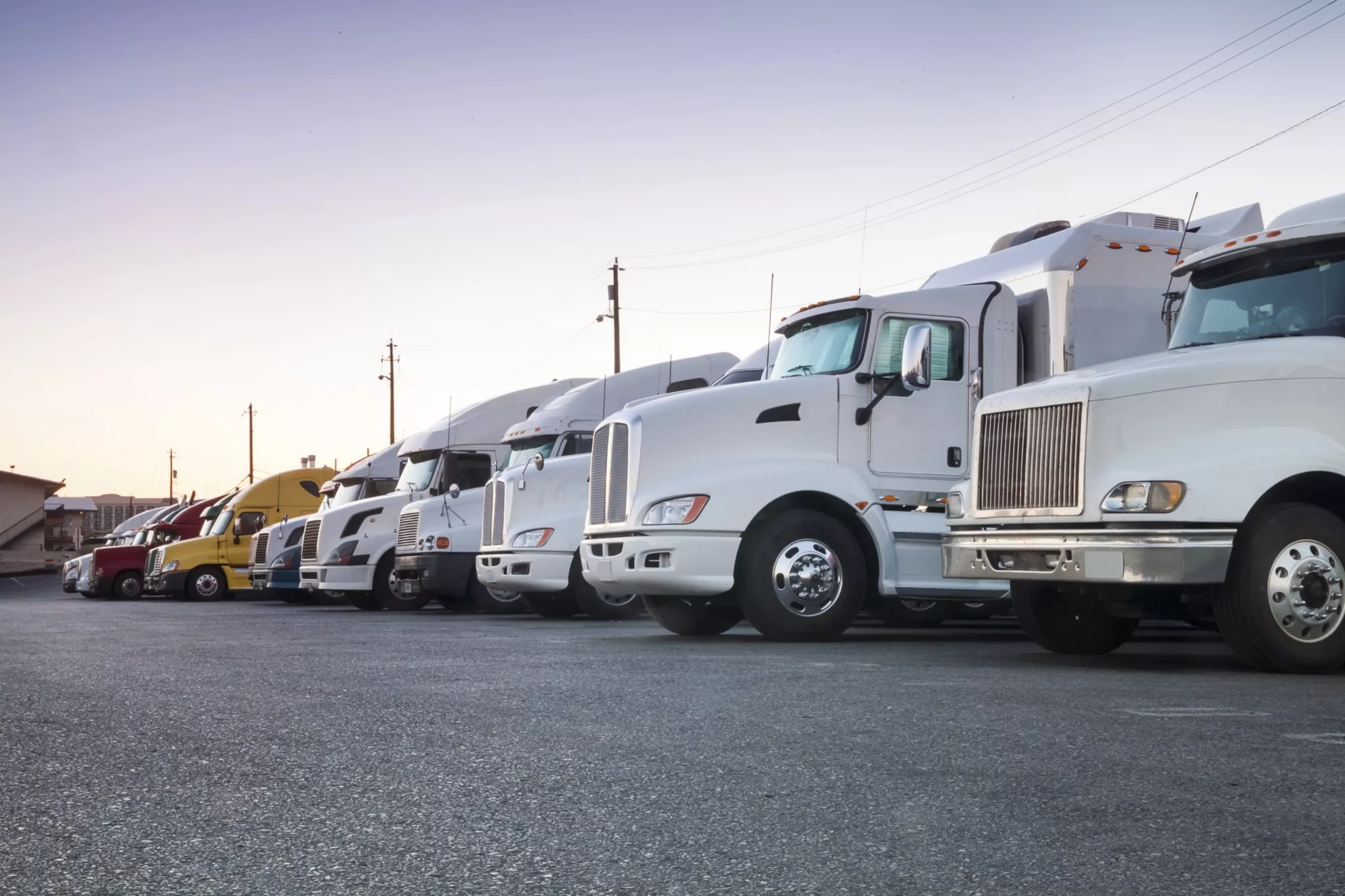Freight brokers and dispatchers are two different roles in the transportation and supply chain world, but they often need clarification. While they have some things in common, they have very clear differences. If you’re considering becoming a trucking freight broker or a dispatcher, this blog is for you.
What is a Dispatcher
Truck dispatchers serve as the crucial connection between suppliers and drivers, guaranteeing a smooth flow in the pickup and delivery of packages. These experts manage incoming requests for truck services, coordinating punctual pickups and drop-offs. Additionally, they utilize diverse software tools to handle invoicing, container tracking, and other routine tasks.
How does a truck dispatcher work?
The chief responsibility of a truck dispatcher is to oversee and arrange the transportation of cargo, collaborating with drivers, vendors, and suppliers. This role is adaptable and may exhibit minor variations based on your specific field or employing organization. Nonetheless, there are certain common tasks and obligations that you can anticipate in your capacity as a truck dispatcher.
Maintain records
Maintaining dispatch and trip records is crucial to a truck dispatcher’s responsibilities, preferably utilizing digital formats. These records should provide an overview of shipments, driver assignments, working hours, and scheduling specifics. Effective record-keeping practices streamline resource management and facilitate compliance with diverse safety regulations.
Receive calls
Proficiency in communication is essential for the effective execution of truck dispatch responsibilities. The truck dispatcher must proficiently handle all incoming calls from vendors and drivers, regardless of their urgency. Additionally, the recording of all these calls falls under their purview.
Find potential clients and negotiate rates
Dispatchers for a trucking company are required to proactively engage prospective clients periodically, to enhance the company’s customer portfolio and boost revenue. Throughout this undertaking, they engage in rate negotiations with clients, striving to achieve mutual satisfaction. The specific rates negotiated might fluctuate depending on factors such as the nature of the shipped goods and the distance covered in transit.
Proactively address issues
Truck dispatchers are tasked with assuming responsibility and effectively managing all emergent scenarios. Proactively addressing potential issues prior to their occurrence aids in the reduction of assorted expenses, encompassing repairs, upkeep, and healthcare outlay. For example, verifying the driver’s optimal health condition before commencing work is one of their duties. Furthermore, they are required to evaluate each situation judiciously and determine the appropriate priorities.
Provide reports to management
Truck dispatchers are obligated to update higher-level management regarding the advancements within their department. Timely submission of these reports guarantees that the company gains enhanced insights into the market, facilitating informed decisions pertaining to shipments.
Plan ahead
Truck dispatchers need to schedule the most efficient driving routes. This process entails studying the weather conditions and providing suitable alternative roads for drivers when necessary. Proper planning ensures that management can provide the drivers with better support and crisis management.
Relay information between clients and drivers
Truck dispatchers must maintain continuous communication with clients and drivers, guaranteeing a smooth transportation process and adherence to every delivery schedule. Proficient communication also assists dispatchers in nurturing robust connections with customers and drivers alike.
Freight Broker vs Dispatcher. What’s the Difference?
Let’s see what the difference between a freight broker and dispatcher in the trucking industry:
- The role of a freight broker involves collaborating with both shippers and drivers, aiming to create satisfying matches between the two parties.
- Trucking broker agent engages with both shippers and carriers, acting as intermediaries without allegiance to either side.
- Trucks brokers earn revenue through this arrangement by collecting fees from shippers and subsequently compensating drivers.
- Dispatchers exclusively advocate for the carrier’s interests during freight negotiations.
Similarities Between Freight Brokers and Dispatchers
Brokers and dispatchers both serve as a value-add to carriers in certain circumstances. Brokers add value by bringing large shipments from their customers to motor carriers. Likewise, dispatchers bring all of that fleet broker business to their network of carriers as a way to save them time from searching the load boards when they are focused on safe driving.

The Benefits of Having a Personal Dispatcher for Owner-Operators
In the dynamic landscape of modern business, efficiency, and optimization have emerged as pivotal elements in achieving success, and the transportation industry is no exception. So, what does a dispatcher do for a trucking company? For independent owner-operators and larger fleets, the presence of a personal cargo dispatcher can significantly elevate operations, leading to streamlined processes and enhanced business performance. A personal dispatcher functions as a dedicated assistant, proficiently managing various aspects of logistics, resulting in improved communication, meticulous route planning, and an overall heightened operational efficiency. Here’s a closer look at why having a personal dispatcher can prove to be exceptionally advantageous:
1. Amplified Efficiency: The role of a personal dispatcher involves alleviating the burden of administrative tasks, allowing owner-operators to focus their efforts on driving and delivering goods. This strategic delegation ensures that valuable time and energy are channeled toward revenue-generating activities while the dispatcher expertly handles paperwork, bookings, and interactions with clients and partners.
2. Refined Route Optimization: Armed with up-to-the-minute information on traffic and weather conditions, a personal dispatcher can offer well-calibrated route recommendations, circumventing congested areas and minimizing potential delays. This translates to time savings, reduced fuel expenses, and decreased wear and tear on the vehicle.
3. Enhanced Communication: Effective communication constitutes the cornerstone of successful transportation endeavors. A personal dispatcher adeptly assumes the role of a liaison between the owner-operator, shippers, receivers, and other stakeholders. By fielding inquiries, updates, and unforeseen changes, the dispatcher ensures everyone is in sync, mitigating misunderstandings.
4. Flexibility and Agility: The transportation industry is characterized by its fluid nature, where circumstances can swiftly evolve. A personal dispatcher possesses the adaptability to respond to these shifts, be it rerouting due to road closures or accommodating impromptu orders. This innate flexibility empowers owner-operators to remain responsive and maintain a competitive edge.
5. Stress Alleviation: The responsibilities of running a trucking business can be daunting and stress-inducing. The presence of a personal dispatcher alleviates many of these operational stresses, fostering a healthier work-life balance and diminishing the risk of burnout.
Why Choose Logity Dispatch?
In the realm of efficient dispatching services tailored to owner-operators, Logity Dispatch emerges as a premier solution. Logity Dispatch offers a personalized dispatching service meticulously tailored to cater to the distinct requirements of owner-operators within the transportation industry. With a proficient team of experienced dispatchers and cutting-edge technology at its core, Logity Dispatch ensures seamless and streamlined business operations.
Upon partnering with Logity Dispatch, owner-operators unlock access to:
- Professional Dispatch Support: Logity Dispatch provides unwavering support around the clock, guaranteeing uninterrupted connectivity and information flow.
- Optimized Route Strategies: Maximize the utility of each journey through meticulously planned routes, incorporating real-time updates on traffic, weather, and other pertinent variables.
- Comprehensive Communication Management: Logity Dispatch adeptly handles all interactions with shippers, receivers, and stakeholders, allowing owner-operators to center their attention on the timely delivery of cargo.
- Effortless Documentation Handling: Bid farewell to the hassles of paperwork. Logity Dispatch efficiently manages all documentation, liberating owner-operators from the shackles of administrative complexities.
Contact us today to learn more about personalized dispatching services.







